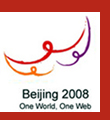Refereed Papers
| Browsers and User Interfaces |
Data Mining |
Industrial Practice and Experience |
| Internet Monetization |
Mobility |
Performance and Scalability |
Rich Media |
Search |
| Security and Privacy |
Semantic / Data Web |
Social Networks and Web 2.0 |
| Technology for Developing Regions |
Web Engineering |
WWW in China |
XML and Web Data |
Developers Track |
Panels |
Posters |
Tutorials |
Workshops
Semantic / Data Web
The Semantic/Data Web programme involves the sharing and processing of data by automated tools as well as by people. The central idea of this vision is to extend the current human-centric web by encoding the semantics of web-resources in a machine-interpretable form in order to be able to automatically integrate data from different sources, to perform actions on behalf of the user, and to search for information based on its meaning rather than its syntactic form.
We solicit contributions to the foundations of the Semantic Web as well as those that demonstrate how structured data technologies can be exploited on the Web. In particular we welcome papers that:
- show how technologies for transmitting and manipulating structured data add value to the Web.
- present new structured data technologies, or novel applications of existing approaches that provide new levels of Web functionality.
- address the role of communities for aggregating structured data on the Web, in particular how community effects on the web can be exploited to generate semantics.
- demonstrate how emerging web trends such as wikis, folkosonomies and social software can be enriched with explicit semantics.
Suggested topics include but are not limited to:
-
Distributed architectures for structured data on the Web
-
Emergent semantics of structured data repositories
-
Ontologies and representation languages
-
Provenance, trust & security
-
Semantic annotation and metadata
-
Brokering, integration and interoperability between different data sources
-
Annotation of multimedia
-
Search and retrieval based on document understanding
-
Web data mining, ontology learning
-
Applications of Semantic Web formats for learning and science
-
Social networks, web communities
-
Other novel applications that exploit structured data sources on the Web
As well as papers arising directly from Semantic Web research, we also welcome contributions from related disciplines which may contribute to the success of the Semantic Web, including Databases, Natural Language Processing, Machine Learning, Information Retrieval, Distributed Systems, and others.
Submissions should describe original, previously unpublished, high quality, innovative work, making significant and preferably not only theoretical, contributions to the overall design of the Semantic Web, Semantic Web systems design and application experience.
Paper formatting requirements will be provided on the submissions page.
-
Track Chairs:
R. Guha (Google, USA)
Riichiro Mizoguchi (Osaka University, Japan) -
Program Committee:
Asuncin Gmez-Prez (Universidad Politcnica de Madrid)
Atanas Kiryakov (Ontotext Lab, Sirma Group Corp.)
Christine Golbreich (Universit de Versailles)
Claire Nedellec (MIG-INRA)
Dieter Fensel (University of Innsbruck, Austria)
Dimitris Plexousakis (Institute of Computer Science, FORTH)
Enrico Motta (The Open University)
Eyal Oren (Digital Enterprise Research Institute (DERI) Galway)
Franois Bry (Institute for Informatics, University of Munich)
Gerd Stumme (University of Kassel)
Gregoris Mentzas (National Technical University of Athens)
Hideaki Takeda (National Institute of Informatics and The University of Tokyo)
Hong-Gee Kim (Seoul National University)
Ian Horrocks (University of Manchester)
Jayant Madhavan
Jeff Heflin (Lehigh University)
Jennifer Golbeck (University of Maryland, College Park)
Jens-Peter Dittrich (ETH Zurich)
John Breslin (DERI, NUI Galway)
Juanzi Li (Dept. of Computer Science, Tsinghua University)
Lalana Kagal (MIT)
Manfred Hauswirth (Digital Enterprise Research Institute (DERI), Galway)
Marianne Winslett (University of Illinois)
Masahiro Hori (Kansai University)
Massimo Paoluccci (DoCoMo Euro Labs)
Michel Klein (Vrije Universiteit Amsterdam)
Munindar P. (Singh (NCSU)
Natasha Noy (Stanford University)
Nicola Cancedda
Nigel Collier (National Institute of Informatics)
Pascal Hitzler (AIFB, University of Karlsruhe)
Peter Mika (Yahoo! Research)
Prasenjit Mitra (The Pennsylvania State University)
Rudi Studer (University of Karlsruhe)
Siegfried Handschuh (National University of Ireland)
Stefan Schlobach (Vrije Universiteit Amsterdam)
Steffen Staab (University of Koblenz-Landau)
SungKook Han (Wonkwang University)
Takahira Yamaguchi (Keio University)
Takahiro Kawamura (Toshiba Corp.)
Thomas Eiter (Institute of Information Systems, TU Vienna)
Vipul Kashyap (Partners Healthcare System)


.jpg)











